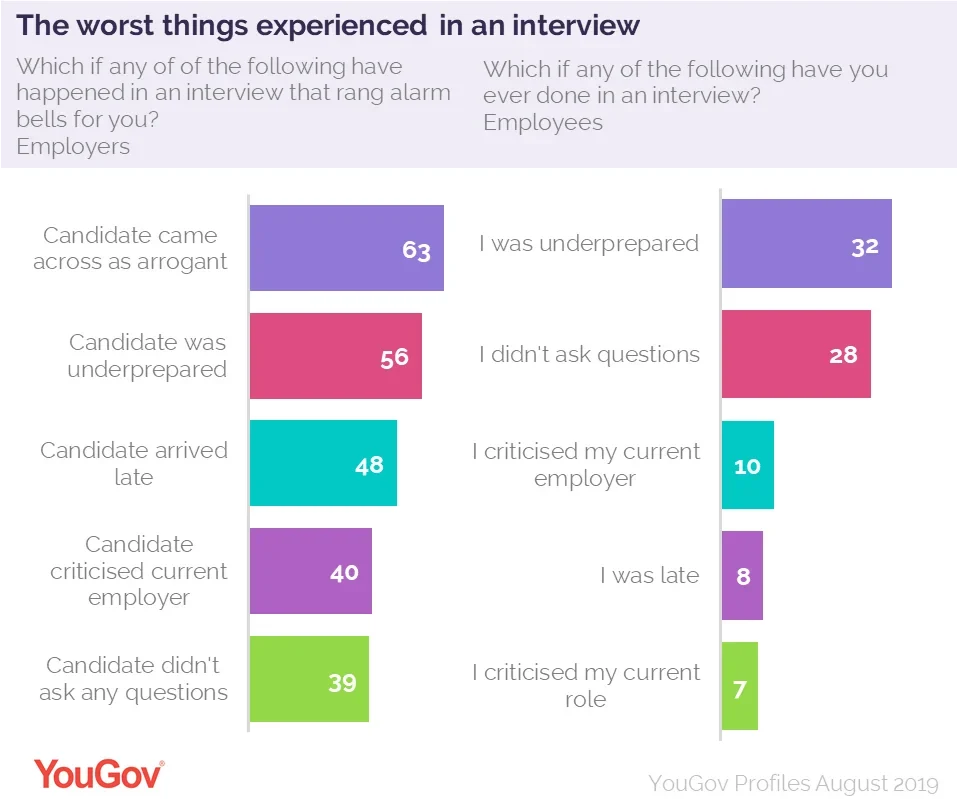Job interviews are stressful and nerves can lead to mistakes. But which are harmless and which are unforgiveable? YouGov’s latest whitepaper, Success in the modern workplace, reveals all.
We asked children aged from 12 to 15, current managers and retired people which slip-ups would be most likely to cost someone a job, to see if attitudes have – or will - alter over time.
According to bosses
Current and retired bosses agree that lying and being dishonest are the worst interview behaviours, indicating that job-seekers might be better off admitting if they lack experience or skills than trying to bluff their way through.
Showing a lack of interest and being unprepared for the interview take second and third place respectively.
- Lie or be dishonest
- Show a lack of interest
- Be unprepared
According to employees
Employees are most put off by interviewers asking them personal or inappropriate questions. They also agree that not fully engaging in the interview, showing a lack of interest or appearing not to listen would be red flags for them.
- Ask personal or inappropriate questions
- Show a lack of interest
- Not listen or pay attention
According to children
Children aged from 12 to 15 have quite a different view when it comes to bad interview behaviour. It appears that the things they are likely to get in trouble for at school heavily influence what they think would be inappropriate in the world of work. Swearing, being rude and lateness are seen as the worst behaviours a candidate could display. They also wouldn’t expect to make it to the second stage of the interview process if they broke wind.
- Swear
- Be rude or display poor manners
- Be late
- Break wind
Worst experiences
When we asked employees and bosses what the worst thing they’ve actually experienced in an interview was, the most common response was arrogance (63%), followed by being underprepared (56%) or arriving late (48%).
However, employees were less likely to report having made these mistakes than bosses were to have seen them. Only a third of employees (32%) admit to turning up to an interview underprepared and only 8% admit to having ever been late for one.

What makes a good boss?
When asked what qualities were most important in a boss, employees ranked honesty top, followed by fairness, flexibility, loyalty and trust. The qualities that make a bad boss were dishonesty, laziness, arrogance, unfairness and rudeness,
Children agreed that rudeness was the worst quality for a boss, and that they didn’t want their boss to be too “bossy”.







